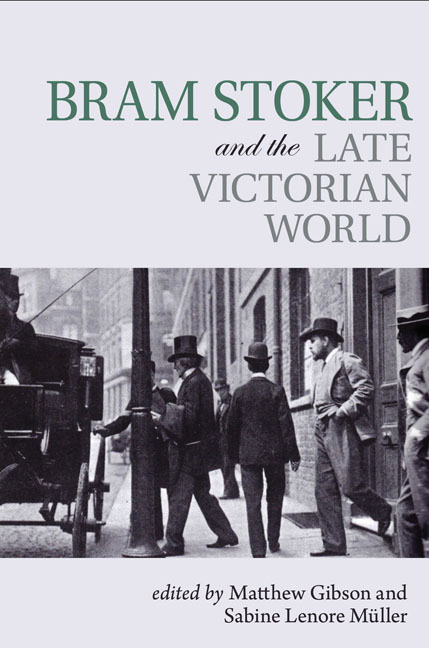4 - “Sure we are all friends here!”: Bram Stoker's Ideal of Friendship and Community in the Context of Nineteenth-century Bio-social Thought
Summary
“Never in any other man have I seen such a capacity for devotion to a friend,” Hall Caine writes about Bram Stoker in his obituary in 1912. Stoker's friends and correspondents, as well as his biographers, agree that he was a sincerely devoted and appreciative friend, Dacre Stoker, in The Forgotten Writings of Bram Stoker, noting that “Bram was clearly a man who valued and was valued by his circle of friends.” Ellen Terry, Henry Irving, and Hall Caine were among his closest friends, to whom he dedicated effusive notes of appreciation and appraisal. When reading Stoker's novels, especially those from the 1890s—The Snake’s Pass (1890), The Shoulder of Shasta (1895) and Dracula (1897)—friendship, loyalty, even sacrifice for the sake of a community of friends appear as unshakeable ideals and the only antidote to social injustice and an omniscient, threatening form of bio-power. Stoker's novels unfold their narratives in the wider context of Victorian theories on population growth and social development, in which questions about “how we live and how we might live, became questions that were believed to have biological answers.” The theories of Charles Darwin and Robert Malthus, and a host of scholars and critics in their wake, were the foundation of a climate in which biological, sociological, and political questions were discussed in close connection. Hence, it is not surprising that throughout Stoker's prose and fiction this nexus is apparent. But what is surprising is that Stoker, perhaps inspired by the outspoken socialism of his friend the Manx-man Thomas Henry Hall Caine, himself expressed views critical of Darwinian principles of natural selection and also opposed the fatal biopolitics resulting from combining economic laissez-faire with Malthusian population theories. This paper will explore Stoker's social ideals and his vision of friendship in the frame of nineteenth-century bio-sociological and bio-political thought and—owing a great debt to Piers J. Hale's Political Descent: Malthus, Mutualism, and the Politics of Evolution in Victorian England (2014)—will draw special attention to the numerous resonances between views expressed in Stoker's texts and those developed by Victorian socialist critics of Malthus, Darwin, and their followers.
- Type
- Chapter
- Information
- Bram Stoker and the Late Victorian World , pp. 77 - 100Publisher: Liverpool University PressPrint publication year: 2019



